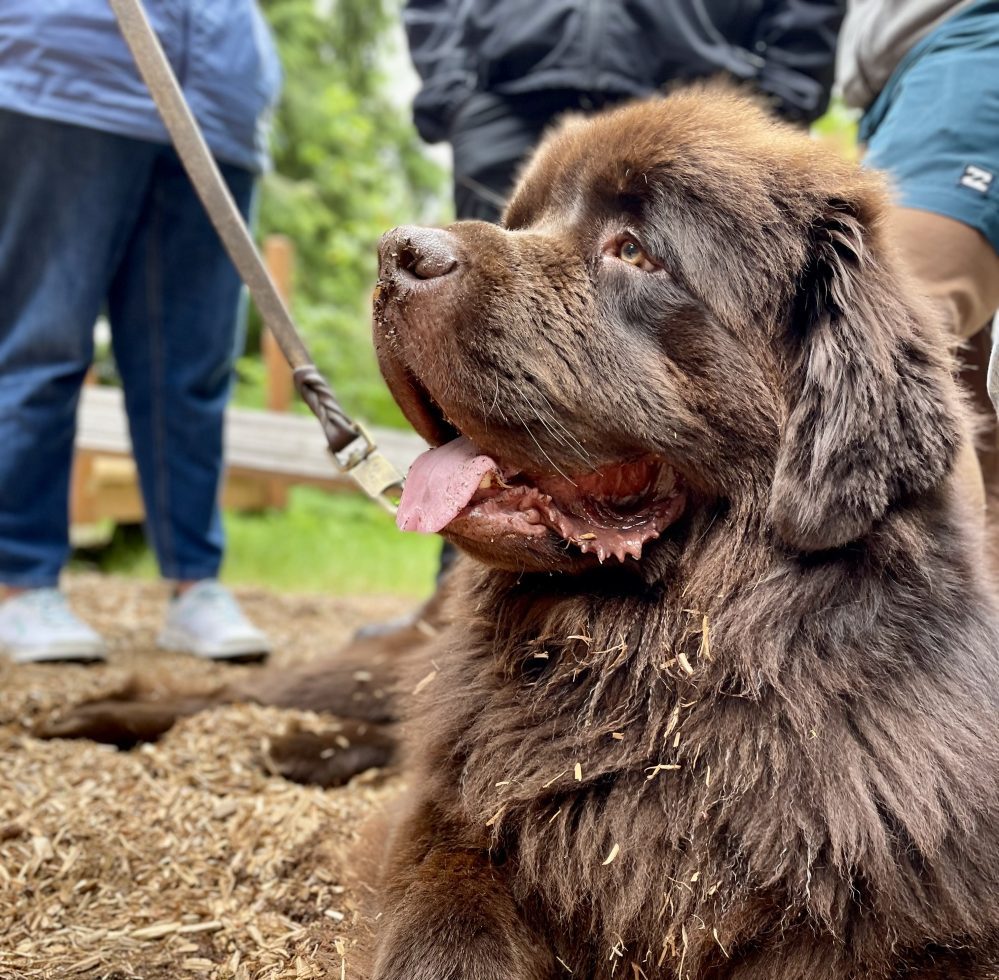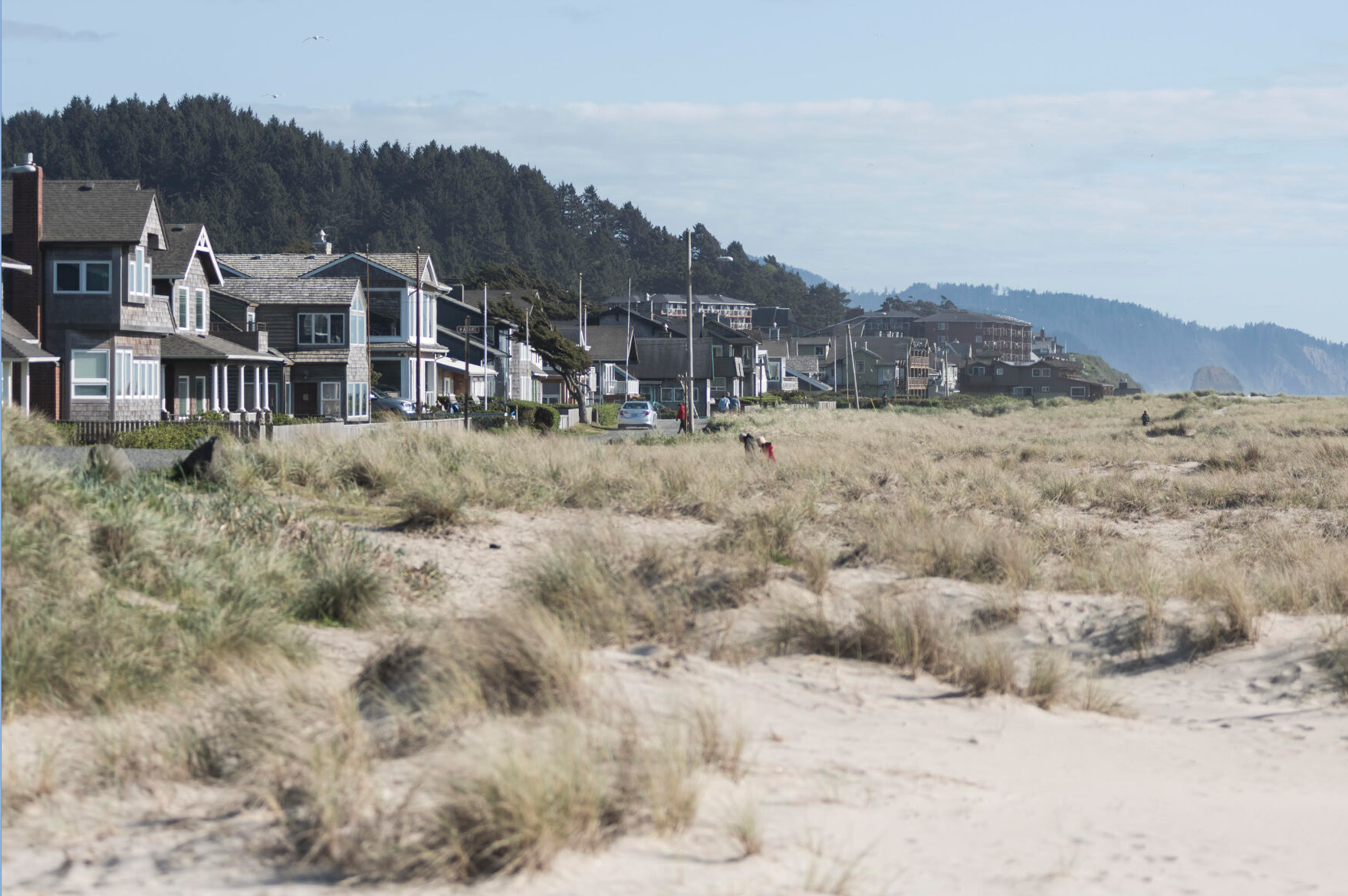Recollections of certain ‘interesting’ experiences from World War II over Hitler’s Germany
Published 9:21 am Monday, November 10, 2014
Gene McCann was one of eight children born to Mae and John (Mac) McCann in Portland and raised in Rainier. In 1942, McCann entered military training and two years later became a radioman and technical sergeant in the 8th Air Corps (later renamed Air Force), 93rd Bomb Group, Crew No. 260, stationed in Hardwick, England, near Norwich. This is one of his stories.
Trending
By Gene M. McCann
On Oct. 30, 1944, our assigned mission was to bomb synthetic oil refineries at Hamburg in northern Germany.
Hamburg was very heavily defended by many antiaircraft batteries and Luftwaffe fighters, FW-190s and ME-109s, as there were a number of industries critical to the German war machine.
Trending
At this time in the battle, the English and American forces were gradually pushing the wermacht northeastward through Belgium and Holland; but a lot of the territory was very much under German control, so that the route to many of our targets was dangerous to fly over land in a direct route. For this reason, our course was plotted northeasterly over the North Sea, out of reach of enemy anti-aircraft batteries, in addition to keeping the enemy guessing where we would cross the coast and head for a particular target or city.
This would be the eighth mission for my crew and by then we had had enough experiences to know that this was to be anything but a “milk run.”
When we reached a point somewhere between Cuxhaven and Bremerhaven the Group made a turn to the southeast and headed for the I.P. (Initial Point) several minutes from our target. We had put on our steel helmets and flak vests before approaching land, and in a short time ugly black puffs of exploding shells greeted us — many in the distance, but as the seconds ticked by, those bursts came ever closer and very near our altitude of about 20,000 feet.
From the I.P. till “bombs away,” of course, no evasive action could be taken. It seemed like time stopped until our bombs dropped and the plane seemed to suddenly rise 20 feet or so. In several seconds, the bomb bay was awash with a torrent of aviation fuel. A piece of flak had made a 2-inch hole in the No. 2 fuel cell over the bomb bay. The turbulence of air from the still-open bomb doors instantly vaporized the gushing fuel, saturating nearly everything fore and aft. It didn’t take long for that tank to completely drain. It was one of four 300 gallon wing tanks that had been full when we left our base. We were now a bomb just waiting for a spark from anywhere to spoil our day!
At about the same instant as the hole in the fuel cell, No. 3 engine began to vibrate violently, threatening to tear itself loose from its mounts in the right wing. As quickly as he could. Co-pilot Howard Bolton got the prop feathered and at last stopped the vibration. The No. 1 and No. 2 engines were running at very high rpm, but No. 4 was running rough and with about half power, so our pilot, Dave Forsman and co-pilot Howard were struggling to trim the controls and maintain stability; we were losing altitude. We had dropped out of our position in the squadron and quickly fell behind the Group. Some of us had our faces washed with the gas — it burned our tender pink skin and our eyes felt like they were on fire with no way to wash them out.
Although our rate of descent was gradual, we were definitely going to run out of fuel and/or altitude at some time in our not-too-distant future and we briefly discussed heading for neutral Sweden, being interned for the duration of the war; but the prospect of having to fly quite a distance over the Baltic Sea — the possibility of having to ditch in the frigid water didn’t appeal to us. With a quick vote, we elected to get the most direct course to head for Holland. If we could somehow avoid being downed by flak and enemy fighters, at least we would be over land.
We were obviously “on our own,” however, we were soon joined by two of our “little friends” — a welcome pair of P-51’s (Mustang fighters). These were from a group that had some of the newly installed drop tanks, which greatly increased their range. They rode “herd” on us to keep the “bandits” away. (German fighter pilots loved to catch a crippled bomber limping along; it was usually a sure kill for them). Dave and Howard were kept busy keeping control and taking what evasive action they could to avoid the more-than-occasional flak — we were well within their reach.
Our two “cowboys” flew crisscross above and behind us, flak and all. We owed these guys a lot. Although we kept getting a few more ventilation holes in the plane, none of them was serious enough to knock us down. Finally in the distance we saw the battle line — with a little more luck we might reach “the promised land!”
When we went over the line, we were at about 1,200 feet altitude and caught a lot of small arms fire. I can still hear the sounds of PING … TUNK … ZIP as bullets came up through the wing and fuselage. Somehow, not one of us was hit by them (Thank you, Lord!). Also only by the grace of God, none of these provided a spark to detonate our ever-present gas fumes; it just wasn’t to be our sudden end.
Soon, out of nowhere, a small runway appeared in the distance and Dave lined up in a crazy sort of approach. We came in hot as a firecracker with Dave fiercely struggling to dodge filled-in craters and stay on that narrow strip. I was on the flight deck with our engineer, Karl Krammes and it seemed forever when Dave hollered for Howard to “kill the damn switches!”
They both had to stomp on the brakes with only minimal hydraulic oil remaining to stop us before we crashed into a battered C-47.
I think we all made it out of that plane and away to a safe distance where we watched to see if the thing might blow. We warned the approaching curious U.S. military personnel that it was dangerous to get too close and to not get near it with a cigarette.
After a while when our “holy” B-24 hadn’t exploded, we went out and looked it over to see just how close we had all come to ending our short military careers. In one blade of No. 3 propeller there was a hole about the size of my thumb; a small piece of flak had made a clean hole, causing enough imbalance to nearly tear that engine off.
Under the flight deck there was damage to the throttle quadrant, nearly severing throttle rods and mixture controls. It was only with a great deal of luck that there was any control left for our beleaguered engines. On the horizontal stabilizer near the left vertical tail was a splayed hole that a fist could easily go through. We guessed that an 88mm had gone through that spot without detonating … another THANK YOU LORD!
We were billeted and fed for several days in an old cold stone building, occupied by a U.S. Army engineering outfit, after which we were flown by a C-47 back across the Channel to our base at Hardwick. One final part of this tale as it turned out was typical of a crew that was missing or late returning to base.
Upon returning to our Quonset hut we could instantly see that our footlockers had been “rummaged through” and many of our G.I. articles were gone. Personal items such as pictures, etc. were not taken but things like army pants, shirts, long underwear and issued 45 caliber pistols.
It wasn’t customary to hold a “shakedown search” to retrieve such items — we only had to go to the quartermaster and be reissued the necessities. One important thing we needed to do was write home to our wives or girlfriends and family to let them know we were OK. Sometimes the military immediately notified a family that “XXX” was missing, KIA, or unaccounted for. We then tended to wonder about the next mission we would be scheduled for, when we’d be assigned another B-24 to fly another all-expenses-paid trip to what strategic target and what the future held for us?
Such was the life (and sometimes misfortunes) of some young “dudes” in the fulfillment of their destiny and the blazing transformation from recent teen years to manhood!
— Gene M. McCann
Tech.Sgt. ASN 19077106
409th Bomb Sqdn. 93rd Bomb Group (H)
8th Air Force … European Theater
Length of service: 1942-1945









